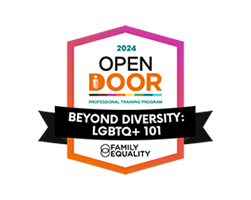This article from Egg Donor & Surrogate Solutions discusses the topic of genetic carrier screening for egg donors and its importance in the egg donation process. It emphasizes that being a genetic carrier for a certain condition should not necessarily prevent intended parents from moving forward with their chosen donor. The article explains what it means to be a genetic carrier and differentiates between autosomal recessive and X-linked conditions.
For autosomal recessive conditions, such as cystic fibrosis and sickle cell, both the egg provider and the sperm provider must carry variants in the same gene for there to be a potential risk of passing on the disease. X-linked conditions, on the other hand, are carried on the X chromosome and primarily affect males.
The article mentions that expanded carrier screening, which tests for over 100 conditions, is now recommended by the American College of Medical Genetics and Genomics. As a result, it is more likely for a donor to test positive as a carrier for at least one genetic condition.
If a chosen donor is found to be a carrier for a serious X-linked condition, such as Fragile X, the donor would be disqualified from the program due to the high risk of passing on the disease. In such cases, the agency would match the intended parents with another donor at no additional cost.
If the donor is found to be a carrier for an autosomal recessive condition, the intended father (or sperm provider) should also be screened to determine if he is a carrier for the same genetic mutation. If the intended father is not a carrier, there would be no risk of passing the disease to a child, and the intended parents can proceed with the chosen donor.
The article emphasizes that being a genetic carrier does not mean that the donor is unhealthy or that there is an automatic risk of the condition being passed on to a child. Further evaluation and testing, including screening the intended father, can provide more clarity and help alleviate any concerns.
In conclusion, the article encourages intended parents to prioritize the health of their future child and to feel comfortable and confident with the chosen donor. It suggests consulting with a genetic counselor or physician for any concerns or questions about a donor’s genetic carrier status.
Please note that the information provided in this article is not intended as medical advice, and it is recommended to consult with a medical provider for specific questions or concerns.
We help Intended Parents Create Happy Families via Egg Donation & Surrogacy with the help of caring Egg Donors & Surrogates.
Donor sibling registry, egg donation process, Egg Donor Solutions, Intended Parents, Why use an agency?, Intended Parent Resources, Intended Parent Webinar, Getting started, Why our agency?, Selecting your donor.








